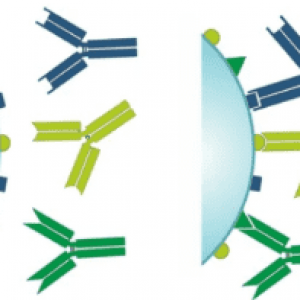Overview of Biotinylation
Biotinylation is the process of covalently attaching biotin to proteins, nucleic acids or other molecules. Biotinylation is rapid, specific and unlikely to interfere with the natural function of the molecule due to the small size of biotin. Biotin binds to streptavidin and avidin with extremely high affinity, rapid binding rate, and high specificity, and these interactions are used in many areas of biotechnology to isolate biotinylated molecules of interest. The binding of biotin to streptavidin and avidin resists extreme heat, pH, and proteolysis, making it possible to capture biotinylated molecules in a variety of environments. In addition, multiple biotin molecules can bind to the protein of interest, which allows binding of multiple streptavidin, avidin, or neutravidin molecules and increases the sensitivity of detection of the protein of interest.
 Fig. 1 Principles of Proximity-Dependent Biotinylation. (Samavarchitehrani, et al., 2020)
Fig. 1 Principles of Proximity-Dependent Biotinylation. (Samavarchitehrani, et al., 2020)
Biotinylation of Peptidomimetics
Usually, biotinylated peptides or proteins are mainly used for labeling, purification or detection purposes, especially in immunoassays and protein-protein interaction studies. However, it has been found that administration of peptides or peptidomimetics with simple, nontoxic biotin modifications can facilitate their delivery across cell membranes and facilitate oral uptake. The development of peptidomimetics with biotinylation modifications therefore plays an important role in the development of new therapeutics and their use as drug lead compounds.




